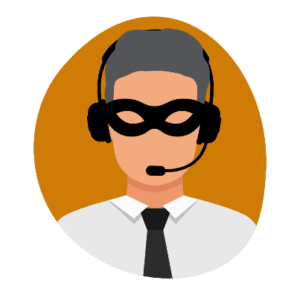Fraud on the Rise… Know How to Protect Yourself
July 30, 2021

Scammers continue to try to deceive us with their malicious emails, texts and calls and it’s important to learn how to better protect yourself & others from harm. Although these messages may seem legit, there is potential it could be a scammer with malicious activity underway.
There are four main kinds of fraud, those being;
- Phishing (through email)
- Vishing (through phone calls)
- SMiShing (though SMS/text messages)
- Malware (malicious software)
Fraudulent messages try and get you to give away your personal banking information, click on a malicious link to hack into your accounts or require you to fill out information that could lead to a hack. There are numerous ways these scammers try to deceive us, but to better protect yourself, remember these common warning signs:
- Don’t always trust the display name – criminals will spoof the email name to appear to be a legitimate sender
- Check for misspelled words, bad grammar, and/or typos within the content
- Be cautious of clicking links and opening attachments – DON’T CLICK unless you are confident of the sender or expecting the attachment
- Asking you to share a one-time passcode sent to your device (when they called you)
- Check the salutation – many legitimate businesses will use a personal salutation
- Do not provide personal information when asked
- Be suspicious of “urgent” or “immediate” response needed or “unauthorized login attempt” of your account
- Don’t believe everything you see. Brand logos, names and addresses may appear legitimate
- The recipient group seems random or unusual (e.g. all last names begin with the same letter)
- The email appears to be a reply to a message that you didn’t actually send
- Monitor the sender’s email address for suspicious URLs & domains – often using similar letters and numbers
- If something seems suspicious; contact that source with a new email or phone call, rather than just hitting reply
- Always, be wary of tempting offers
 A common scam example is a fraudster (who is impersonating the credit union) claims that fraudulent transactions have been detected on your account and the credit union needs to verify your personal information. You may be asked to identify yourself with personal information, account info, login credentials, or a one-time passcode. Recognizing scams can be difficult. But you can minimize the potential impact by knowing what to look for, taking the right action steps, and remaining vigilant.
A common scam example is a fraudster (who is impersonating the credit union) claims that fraudulent transactions have been detected on your account and the credit union needs to verify your personal information. You may be asked to identify yourself with personal information, account info, login credentials, or a one-time passcode. Recognizing scams can be difficult. But you can minimize the potential impact by knowing what to look for, taking the right action steps, and remaining vigilant.
Truth is, if your caller ID says we are calling you from Unison Credit Union or our phone number, we will never ask for your Social Security Number, login credentials, or a one-time passcode. If someone calls you from our number and asks for this type of information, hang up and call us back yourself to report it. It is likely a “spoofed” call.
Always be cautious when giving out your personal information…let’s all become more educated on how to reduce the number of scams and fraudulent behavior.
(Information sourced from 2020 CUNA Mutual Group)

